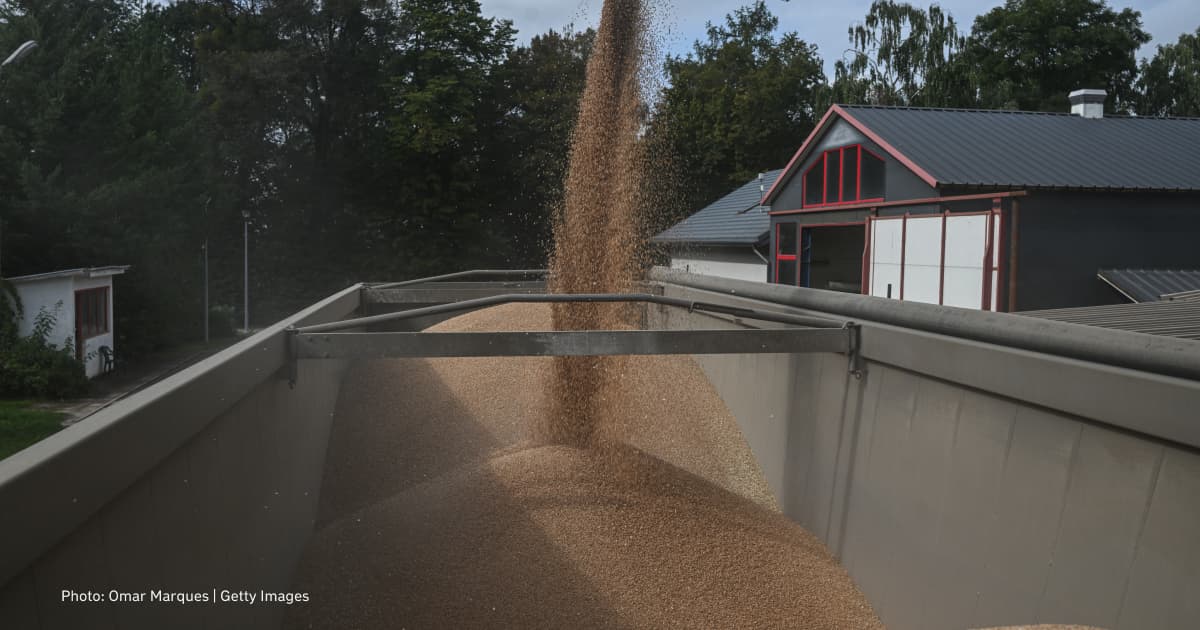Lithuanian farmers face problems with Russian grain, not Ukrainian

Vilnius, Lithuania, (Svidomi) — Amid a partial blockade by farmers on the Polish-Lithuanian border over Ukrainian grain, Lithuanian farmers express concerns about the import of Russian grain, not Ukrainian, Lithuanian public broadcaster reports.
Since March 1, Polish farmers have blocked the main road at the former Kalvarija-Budzisko border crossing and inspected trucks, citing fears that some of the Ukrainian grain imported to Lithuania is returning to Poland.
However, Lithuanian farmers say their biggest problem is not Ukrainian but Russian grain, which is entering the EU in huge quantities.
"These are impressive figures: in 2023, over 3 million tonnes of Russian grain passed through Latvia and Lithuania in total. Altogether, 12 million tonnes of Russian grain were imported to the EU market last year," said Aušris Macijauskas, Head of the Lithuanian Grain Producers Association.
In his words, Russian grain is driving down prices in the EU, as Russians are deliberately lowering prices to create chaos in the agricultural sector. But the European Commission has the tools to stop this.
"There is a regulation that allows the EU to intervene in the market in an emergency and start buying food products whose prices are falling sharply. In this case, it could buy Ukrainian grain on the territory of Ukraine and thus stabilise the market," Macijauskas said.
According to grain processors, last year Lithuania imported about 50,000 tonnes of Ukrainian grain, which is much less than in the pre-war period.
On February 22, Latvia banned imports of Russian and Belarusian grain. The import ban applies to agricultural and livestock products in Latvia, not to those sent to other EU member states.


